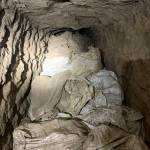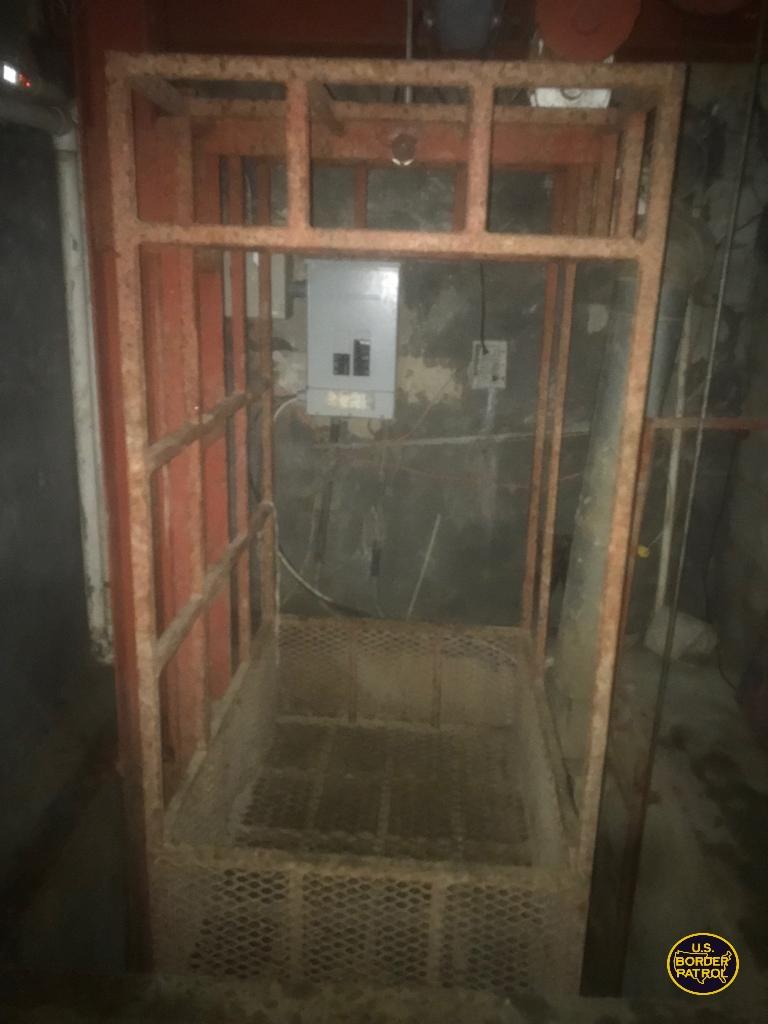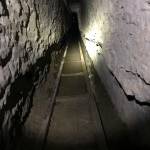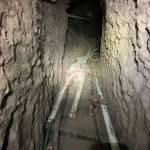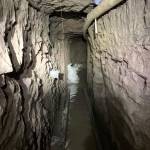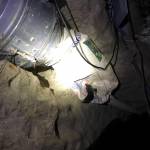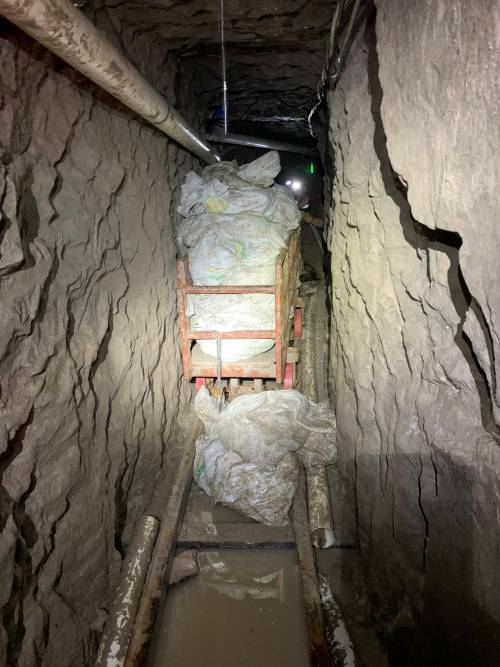
After a challenging multi-year, inter-agency investigation, utilizing technology capabilities, intelligence gathering, and community outreach, law enforcement partners on the San Diego Tunnel Task Force have exposed the longest illicit cross-border tunnel ever discovered along the Southwest border.
The tunnel originates in Tijuana, Baja California, Mexico in an industrial area approximately one-half-mile west of the Otay Mesa Port of Entry. Following the discovery in late August 2019, Mexican law enforcement identified the tunnel entrance and members of the SDTTF began mapping the tunnel from Mexico. Concealed by a small industrial building, the tunnel travels north into the United States, bending slightly west and extending an astonishing 4,068 feet from the border, with a total length of 4,309 feet – over three-quarters of a mile. The next longest tunnel in the United States, discovered in San Diego in 2014, was 2,966 feet long.
The tunnel, that is approximately five and a half feet tall and two feet wide, has an average depth of 70 feet from the surface. It includes an extensive rail/cart system, forced air ventilation, high voltage electrical cables and panels, an elevator at the tunnel entrance, and a complex drainage system.
“As efforts to strengthen security on our Southern Border increase, Mexican drug cartels are forced underground to smuggle their deadly drugs into the United States,” said DEA Special Agent in Charge John W. Callery. “The sophistication of this tunnel demonstrates the determination and monetary resources of the cartels. And although the cartels will continue to use their resources to try and breach our border, the DEA and our partners on the Tunnel Task Force will continue to use our resources to ensure they fail, that our border is secure, and that tunnels like this are shut down to stem the flow of deadly drugs entering the United States.”
SDTTF, an inter-agency unit consisting of agents from DEA, United States Border Patrol, Homeland Security Investigations, and the United States Attorney’s Office, uncovered the location of the tunnel after months of investigations and tireless law enforcement efforts.
An offshoot from the main tunnel was discovered at approximately 3,529 feet into the United States. This offshoot traveled several feet then came to an end without breaching the surface. The main tunnel extended another city block, at which point agents discovered several hundred sand bags blocking the suspected former exit of the tunnel in the Otay Mesa warehouse district within the United States.
No arrests or seizures have been made in light of the discovery of this tunnel.
“I am thrilled that this high level narco-tunnel has been discovered and will be rendered unusable for cross-border smuggling. I am proud of the tremendous efforts of the Tunnel Task Force and our agents,” said USBP Deputy Chief Patrol Agent Aaron M. Heitke. “The investigation continues, and I am confident that our hard work and dedication to uphold the law will lead to future arrests and seizures.”
“While subterranean tunnels are not a new occurrence along the California-Mexico border, the sophistication and length of this particular tunnel demonstrates the time-consuming efforts transnational criminal organizations will undertake to facilitate cross-border smuggling,” said HSI Acting Special Agent in Charge Cardell T. Morant. “This discovery underscores the importance of the partnerships HSI has with the U.S. Attorney’s Office, United States Border Patrol, Drug Enforcement Administration, and other regional agencies, as collaborative investigations and community outreach are key to combating this type of threat.”


Chattooga Local News
Georgia Begins Distributing One-Time Tax Rebates – Payments Already Arriving

Georgia Politics
Senator Jason Anavitarte Elected Senate Majority Leader

Crime & Safety
GBI Investigates Child Death in Terrell County

Bulloch Public Safety
06/09/2025 Booking Report for Bulloch County

Bulloch Public Safety
05/27/2025 Booking Report for Bulloch County

Bulloch Public Safety
06/02/2025 Booking Report for Bulloch County

Bulloch Public Safety
05/19/2025 Booking Report for Bulloch County

Bulloch Public Safety
06/06/2025 Booking Report for Bulloch County




